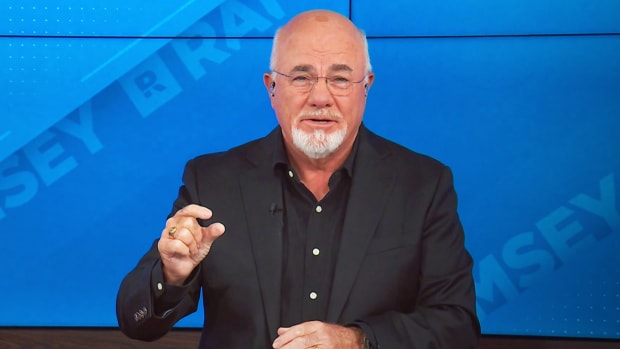
Family Financial Meetings Aren't Just for the Holidays
You don't have to wait for a holiday to bring up family finances, and you don't have to let financial discussion ruin a perfectly good holiday dinner.
Back in November, we had several financial advisors suggest that families use the Thanksgiving and winter holidays to discuss estate planning. The prevailing sentiment was that the holidays are a time when the family is together anyway, so why not use that time to bring those issues to light?
Kim Dula, a partner at Friedman LLP, was particularly fond of the idea of using a family holiday gathering to discuss estate planning. With families spread out across the country or around the world, she said, the holidays offer present a rare opportunity for such discussion.
“The key to it, quite frankly, is not having the element of surprise,” Dula says. “If mom and dad are serious about having a discussion with their family about their estate planning intentions, they have to let the family members know that this is going to occur while the family is together. It can't be the family just sitting down to Thanksgiving dinner and an estate planning issue comes up.”
But, if that's the case, why not get the family together to discuss those issues specifically. Anthony D. Criscuolo, certified financial planner with Palisades Hudson Financial Group's Fort Lauderdale, Fla. office, suggests setting up a family meeting to get financial issues out in the open. He also notes that families “don’t necessarily have to be in the 1% to benefit from having one or more family meetings” on various financial topics.
“Whenever something major changes, a general meeting can give family members permission to talk frankly about the long-term implications, financial and otherwise,” he says.
He notes that a wedding, a baby or a major windfall (lottery winnings, business transactions, etc.) or even major setbacks including job loss or a death in the family are all ideally discussed through a family meeting. However, if a family hasn't done this before, Criscuolo suggests having an initial big-picture meeting to go over the family's financial situation and long-term plans.
“Don’t make decisions at the first meeting,” Criscuolo says. “Instead, try to achieve understanding between various family members about financial matters.”
While families with greater wealth can use this as a launching point for charitable trusts and other philanthropy, it could also revolve around a shared family business. Criscuolo notes that family members who are intimately involved in the business’s day-to-day operations may want to use that time to keep family members with less involvement updated. It also serves as a barometer for younger adult family members who may either want a greater role in the business or may want to dynasty trust or the succession plan for that business.
Masood Vojdani, founder and chief executive of MV Financial in Bethesda, Md., adds that these meetings can also provide family members with some idea of how shares of the business or other assets will be distributed down the road. Criscuolo notes that a family meeting provides a comfortable environment for a “top-down” explanation of a couple or individual's estate plan, including inheritances plans and the naming of executors and trustees.
“Do not let another day go by: Let's call them, let's get together with your children, let's review,” Vojdani says. “Sometimes, parents are reluctant to tell their kids what assets they're going to get, but I think what's most important is that they know what's coming to them, even if they don't know the exact detail today.”
No, these discussions aren't always comfortable, but neither are the unexpected surprises that lead to family members disputing a will and tearing their family apart. This is why, Criscuolo says, families can't shy away from a few key questions: Does the money “belong” to those who built the wealth or is it a family resource to be shared? If it's the latter, shared by whom specifically? What is the wealth best used for in the long run? What is the family’s responsibility to its individual members, and vice versa?
“Whatever the older generation decides, the decision will almost certainly be easier to handle in a lifetime discussion than as a complete surprise when the will is examined after death,” he says. “Not all conflicts can be resolved through simple discussion, of course, but honesty and transparency make it much more likely that a compromise will be found.”
However, there are some families that a meeting just can't help. Jay Freireich, an estate planning attorney for Brach Eichler LLC in Roseland, N.J., notes that families that draft wills, easily distribute assets and communicate regularly make his job fairly dull. Even when there are minor conflicts involved, Freireich notes that the vast majority of those cases end in confidential settlements in which no one admits liability. Then there are the other families -- the ones where children take their stepmothers to court over a coffee table.
“I'm typically dealing with a dysfunctional family dynamic, because a functional family dynamic leaves everything to everybody equally and there are no issues,” he says. “The normal, harmonious family -- the 'Leave It To Beaver Family' -- gets its shares equally.”
Mela Garber, principal at Anchin, Block & Anchin and head of the firm’s trust and estates services group, notes that she's seen numerous examples of siblings taking each other to court when the will or trust distribution is unequal. Sometimes it's because one of the children was closer to the deceased parent than the other, but it almost always comes down to a lack of communication.
In situations where the family dynamic is too dysfunctional to accommodate a family meeting, Garber suggests a letter from the parent explaining any imbalance in distributions. She also recommends creating a list of personal items and indicating specifically who will get jewelry, art or anything else of even sentimental value. If that doesn't work, a will or trust should have contingencies for selling those items and dividing the profits or -- in a plan Garber has implemented before, holding an auction between the competing parties in which the winner gets the item and the loser gets the money bid.
It doesn't have to reach this stage, however. Even if it does, the need for those drastic measures can be flushed out well in advance if families just talk about financial topics. Criscuolo notes that, for some families, conquering the initial awkwardness of talking about money will be the biggest hurdle. Once the meeting happens, however, a family's financial future will be a lot clearer -- if not exactly harmonious.
“It’s unlikely you’ll completely resolve a major problem in a single sitting,” he says. “But the best chance of a successful resolution requires calmly listening to different perspectives and keeping lines of communication open.”
This article is commentary by an independent contributor. At the time of publication, the author held no positions in the stocks mentioned.










